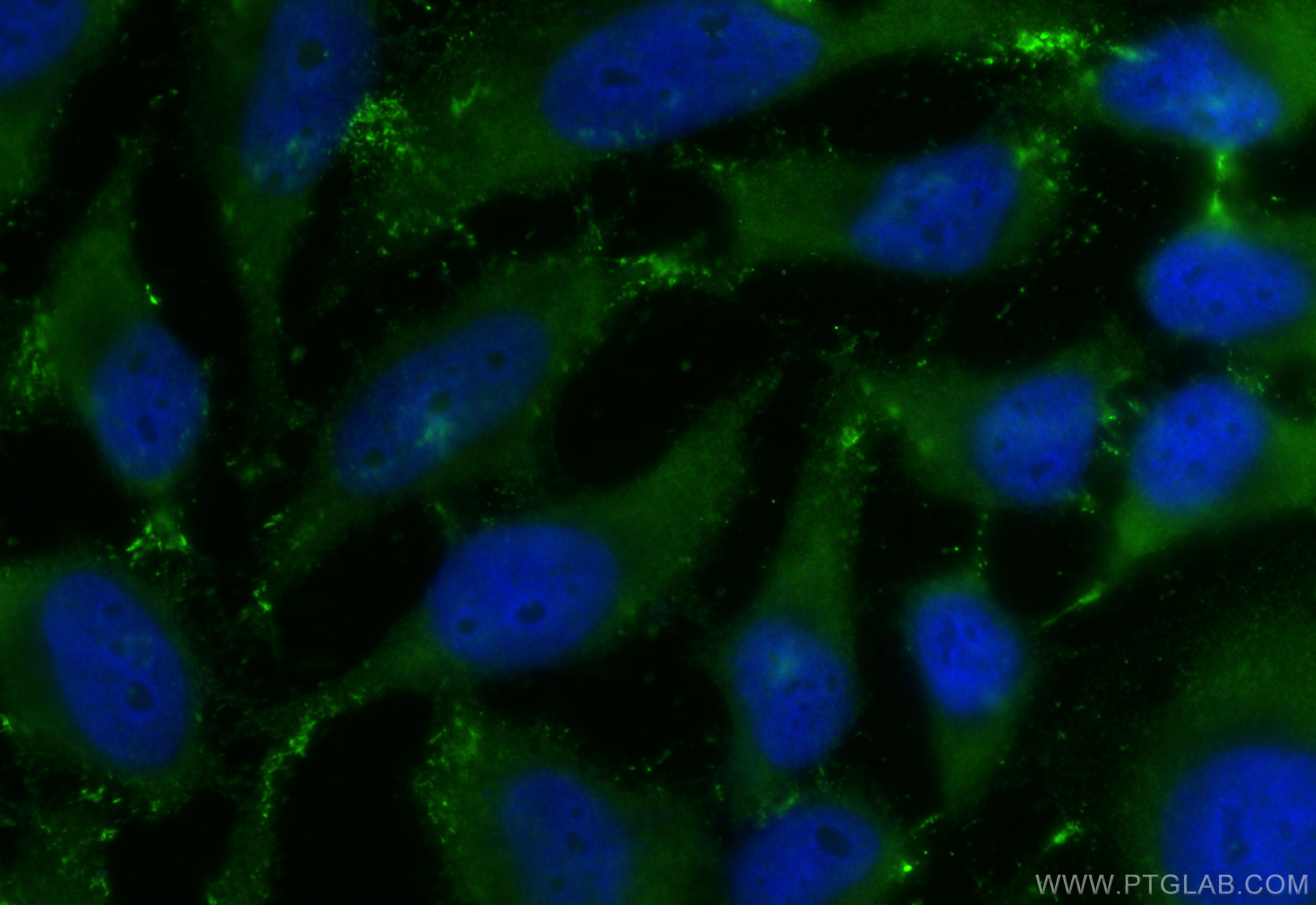Tested Applications
| Positive IF/ICC detected in | HeLa cells |
Recommended dilution
| Application | Dilution |
|---|---|
| Immunofluorescence (IF)/ICC | IF/ICC : 1:50-1:500 |
| It is recommended that this reagent should be titrated in each testing system to obtain optimal results. | |
| Sample-dependent, Check data in validation data gallery. | |
Product Information
CL488-84344-2 targets EPPK1 in IF/ICC applications and shows reactivity with human samples.
| Tested Reactivity | human |
| Host / Isotype | Rabbit / IgG |
| Class | Recombinant |
| Type | Antibody |
| Immunogen |
CatNo: Ag35749 Product name: Recombinant human EPPK1 protein Source: e coli.-derived, PGEX-4T Tag: GST Domain: 1400-1570 aa of NM_031308.3 Sequence: NKFFFDPSARDQVTYQQLRERCVCDSETGLLLLPLPSDTVLEVDDHTAVALRAMKVPVSTGRFKGCSVSLWDLLLSEYVGADKRRELVALCRSGRAAALRQVVSAVTTLVEAAERQPLQATFRGLRKQVSARDLFRAQLISRKTLDELSQGTTTVKEVAEMDSVKRSLEGG Predict reactive species |
| Full Name | epiplakin 1 |
| Calculated Molecular Weight | 555 kDa |
| Observed Molecular Weight | 500-600 kDa |
| GenBank Accession Number | NM_031308.3 |
| Gene Symbol | EPPK1 |
| Gene ID (NCBI) | 83481 |
| Conjugate | CoraLite® Plus 488 Fluorescent Dye |
| Excitation/Emission Maxima Wavelengths | 493 nm / 522 nm |
| Form | Liquid |
| Purification Method | Protein A purification |
| UNIPROT ID | P58107 |
| Storage Buffer | PBS with 50% glycerol, 0.05% Proclin300, 0.5% BSA, pH 7.3. |
| Storage Conditions | Store at -20°C. Avoid exposure to light. Stable for one year after shipment. Aliquoting is unnecessary for -20oC storage. |
Background Information
Epplakin 1 (EPPK1), belonging to the plakin family, is involved in connecting intermediate filaments and regulating their reorganization in stress response. Studies have shown that EPPK1 is involved in the progression of various cancers, such as liver cancer, cervical cancer, and bladder urothelial carcinoma.
Protocols
| Product Specific Protocols | |
|---|---|
| IF protocol for CL Plus 488 EPPK1 antibody CL488-84344-2 | Download protocol |
| Standard Protocols | |
|---|---|
| Click here to view our Standard Protocols |




